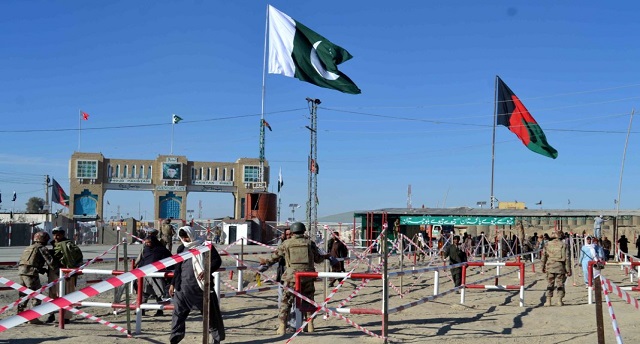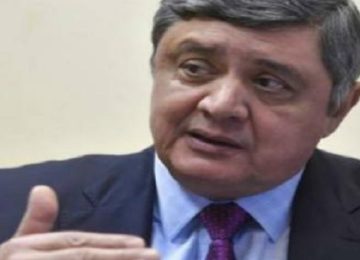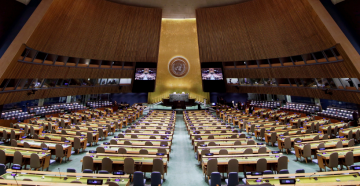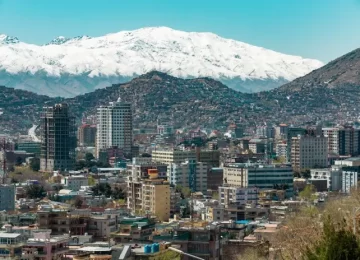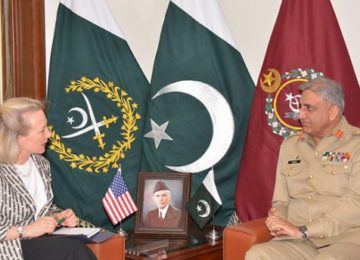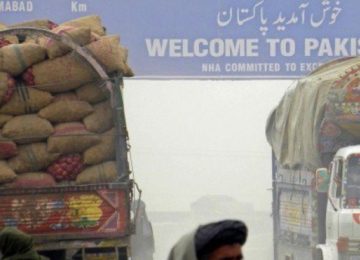December 15, 2017
Pakistan and Afghanistan have agreed for the first time to place “liaison officers” at each other’s military headquarters for better security coordination, and Islamabad is awaiting a formal response from Kabul to its proposal for opening a wide-ranging bilateral dialogue.
Pakistani Foreign Ministry spokesman Mohammad Faisal, at his weekly news conference on Thursday, discussed the rare progress in a relationship traditionally plagued by suspicion and mistrust.
He revealed the proposal entitled “Afghanistan Pakistan Action Plan for Solidarity” – or APAPS – was shared with Afghan officials on November 25. The document offers a comprehensive plan for “constructive and meaningful” engagement between the two countries through working groups in areas of politics, economy, military, intelligence sharing and refugee issues, explained the spokesman.
“A formal reply from the government of Afghanistan in this context is awaited,” said Faisal. He added that the proposal was floated in early October following a meeting between Pakistani military chief General Qamar Javed Bajwa and Afghan President Ashraf Ghani in Kabul.
While the Afghan government has not yet publicly discussed the Pakistani proposal, Faisal welcomed Ghani’s recently published comments in which the Afghan leader acknowledged receiving the document and indicating it could provide a basis for bilateral dialogue.
The spokesman also credited Bajwa’s visit for groundbreaking talks between top military commanders of the two countries hosted by Pakistan on November 30.
“During that meeting the two sides agreed to place liaison officers at each other’s army headquarters and also establish ground coordination centers, or GCCs,” Faisal added.
Mutual allegations, mistrust
Afghanistan and Pakistan share a nearly 2,600 kilometer, largely porous border and frequently accuse each other of not preventing militant terrorist activities on their respective soils.
The allegations and counter allegations have led to the deterioration of bilateral relations, causing mutual acrimony and tension, and undermining economic and trade cooperation.
While Kabul says Taliban sanctuaries on Pakistani soil prolong the war in Afghanistan, officials in Islamabad allege anti-Pakistan militants are using bases in Afghan border areas to plan terrorist attacks in the country.
Pakistani Foreign Ministry spokesman Faisal again expressed concerns about the growing influence of the Islamic State terrorist group across the Afghan border. More than 43 percent of Afghan territory is either out of Kabul’s control or is contested, the spokesman said, citing a recent report by the U.S. government agency, SIGAR (Special Inspector General for Afghanistan Reconstruction).
“Such places in Afghanistan have been instrumental in attracting terrorist groups from all over the world. The presence of such groups not only pose a threat to the security and stability of Afghanistan, but also undermine the security of its neighbors and the region as a whole,” Faisal noted.
The spokesman also said Islamabad has not yet decided whether to extend the stay of more than 3 million Afghans in Pakistan, including documented refugees and illegal economic migrants.
“The validity of the current proof of residence cards is due to expire on December 31, 2017. The government is contemplating all options to extend the validity of the cards or not. So far, no decision has been made,” he said.
Pakistan blames the refugee population for serving as havens for members of the Afghan Taliban and anti-state militants within the country. Foreign Ministry officials say that without repatriating the displaced families to Afghanistan and strengthening border controls on the Afghan side, terrorist infiltration will keep causing mutual tension.
This piece originally appeared on VOA on December 14, 2017. Original link.
Disclaimer: Views expressed on this blog are not necessarily endorsed or supported by the Center for Research and Security Studies, Islamabad.



